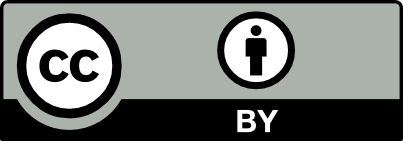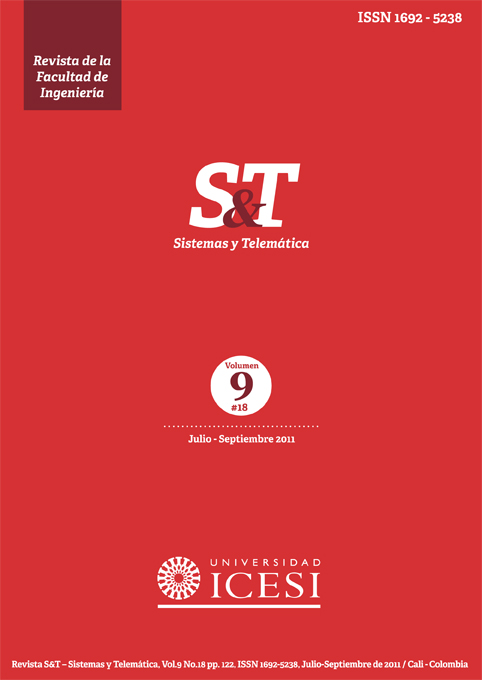Agile Methodology for Small Teams Using Microsoft Platforms
DOI:
https://doi.org/10.18046/syt.v9i18.1078Keywords:
Software development teams, software development methodologies, agile development, project management, collaboration, Microsoft Team Foundation Server.Abstract
Aiming to improve the performance of software development teams, many development methodologies have been defined; among which are the prescriptive and agile. Despite this, teams do not usually use any of these by not finding them tailored to their particular context, and instead go directly to the task of programming. This article proposes a light software development methodology adapted to a precise and well-defined context, aligning Microsoft Solutions Framework for Agile Software Development (MSF4ASD) with the project management guidelines presented in the PMBOK Guide. In addition, it offers elements for the implementation of a Microsoft team software development platform to support it.References
Agile Alliance. (2001). Manifesto for agile software development. Recuperado de: http://www.agilemanifesto.org/
Beck, K., (2004). Extreme programming explained: Embrace change (2nd ed.). Boston, MA: Addison-Wesley Professional.
David, J.-L., Gousset, M., & Gunvaldson, E. (2006). Professional team foundation server. Indianapolis, IN: Wiley Publishing
Humphrey, W. S. (2005). TSP: Leading a development team. Upper Saddle River, NJ: Addison-Wesley Professional.
Humphrey, W. S., Chick, T. A., Nichols, W., & Pomeroy-Huff, M. (2010). Team software process (TSP) Body of knowledge (BOK). Pittsburgh, PA: Software Engineering Institute. http://www.sei.cmu.edu/reports/10tr020.pdf
Mak, B. (2006, Abril). Microsoft solution framework for agile software development (slides). Presentación realizada en Microsoft solution framework for agile software development workshop. Recuperada de: http://download.microsoft.com/download/8/6/3/86375d9e-1263-4ba0-b5f2-f696aceb94f3/20060418.ppt
Microsoft. (2010a). MSF for agile software development v5.0. Recuperado de: http://msdn.microsoft.com/en-us/library/dd380647.aspx
Microsoft. (2010b). Team foundation installation guide for visual studio 2010. Recuperado de: http://www.microsoft.com/download/en/details.aspx?id=24337
Microsoft. (2010c). Visual studio team foundation administrator’s guide. Recuperado de: http://www.microsoft.com/download/en/details.aspx?id=7330
Phillips, D. (2004). The software project manager's handbook. Principles that work at work. Los Alamitos, CA: IEEE Computer Society.
Pino, F. J., García, F., Piattini, M., & Oktaba, H. (2006). Revisión sistemática de mejora de procesos de software en pequeñas y medianas empresas de software. Revista española de innovación, calidad e ingeniería de software (2)1. 6-23. http://redalyc.uaemex.mx/pdf/922/92220103.pdf
Project Management Institute. (2008). A guide to the project management body of knowledge (Pmbok Guide) (4th ed.). Newtown Square, PA: Autor.
Sawyer, S. (2004). Software development teams. Communications of the ACM, (47)12, 95-99. doi: 10.1145/1035134.1035140
Schwaber, K. (2004). Agile project management with Scrum. Redmond, WA: Microsoft Press.
Schwaber, K., & Beedle, M. (2001). Agile software development with Scrum. Upper Saddle River, NJ: Prentice Hall.
Sutherland, J. (2010). Agile principles and values. Recuperado de : http://msdn.microsoft.com/en-us/library/dd997578.aspx
Traa, J. W. A. (2006). Rational unified process vs. Microsoft solutions framework: A comparative study. (Master of Informatics & Economics), Erasmus University Rotterdam, The Netherlands).
Beck, K., (2004). Extreme programming explained: Embrace change (2nd ed.). Boston, MA: Addison-Wesley Professional.
David, J.-L., Gousset, M., & Gunvaldson, E. (2006). Professional team foundation server. Indianapolis, IN: Wiley Publishing
Humphrey, W. S. (2005). TSP: Leading a development team. Upper Saddle River, NJ: Addison-Wesley Professional.
Humphrey, W. S., Chick, T. A., Nichols, W., & Pomeroy-Huff, M. (2010). Team software process (TSP) Body of knowledge (BOK). Pittsburgh, PA: Software Engineering Institute. http://www.sei.cmu.edu/reports/10tr020.pdf
Mak, B. (2006, Abril). Microsoft solution framework for agile software development (slides). Presentación realizada en Microsoft solution framework for agile software development workshop. Recuperada de: http://download.microsoft.com/download/8/6/3/86375d9e-1263-4ba0-b5f2-f696aceb94f3/20060418.ppt
Microsoft. (2010a). MSF for agile software development v5.0. Recuperado de: http://msdn.microsoft.com/en-us/library/dd380647.aspx
Microsoft. (2010b). Team foundation installation guide for visual studio 2010. Recuperado de: http://www.microsoft.com/download/en/details.aspx?id=24337
Microsoft. (2010c). Visual studio team foundation administrator’s guide. Recuperado de: http://www.microsoft.com/download/en/details.aspx?id=7330
Phillips, D. (2004). The software project manager's handbook. Principles that work at work. Los Alamitos, CA: IEEE Computer Society.
Pino, F. J., García, F., Piattini, M., & Oktaba, H. (2006). Revisión sistemática de mejora de procesos de software en pequeñas y medianas empresas de software. Revista española de innovación, calidad e ingeniería de software (2)1. 6-23. http://redalyc.uaemex.mx/pdf/922/92220103.pdf
Project Management Institute. (2008). A guide to the project management body of knowledge (Pmbok Guide) (4th ed.). Newtown Square, PA: Autor.
Sawyer, S. (2004). Software development teams. Communications of the ACM, (47)12, 95-99. doi: 10.1145/1035134.1035140
Schwaber, K. (2004). Agile project management with Scrum. Redmond, WA: Microsoft Press.
Schwaber, K., & Beedle, M. (2001). Agile software development with Scrum. Upper Saddle River, NJ: Prentice Hall.
Sutherland, J. (2010). Agile principles and values. Recuperado de : http://msdn.microsoft.com/en-us/library/dd997578.aspx
Traa, J. W. A. (2006). Rational unified process vs. Microsoft solutions framework: A comparative study. (Master of Informatics & Economics), Erasmus University Rotterdam, The Netherlands).
Downloads
Published
2011-09-30
Issue
Section
Discussion papers
License
This journal is licensed under the terms of the CC BY 4.0 licence (https://creativecommons.org/licenses/by/4.0/legalcode).



